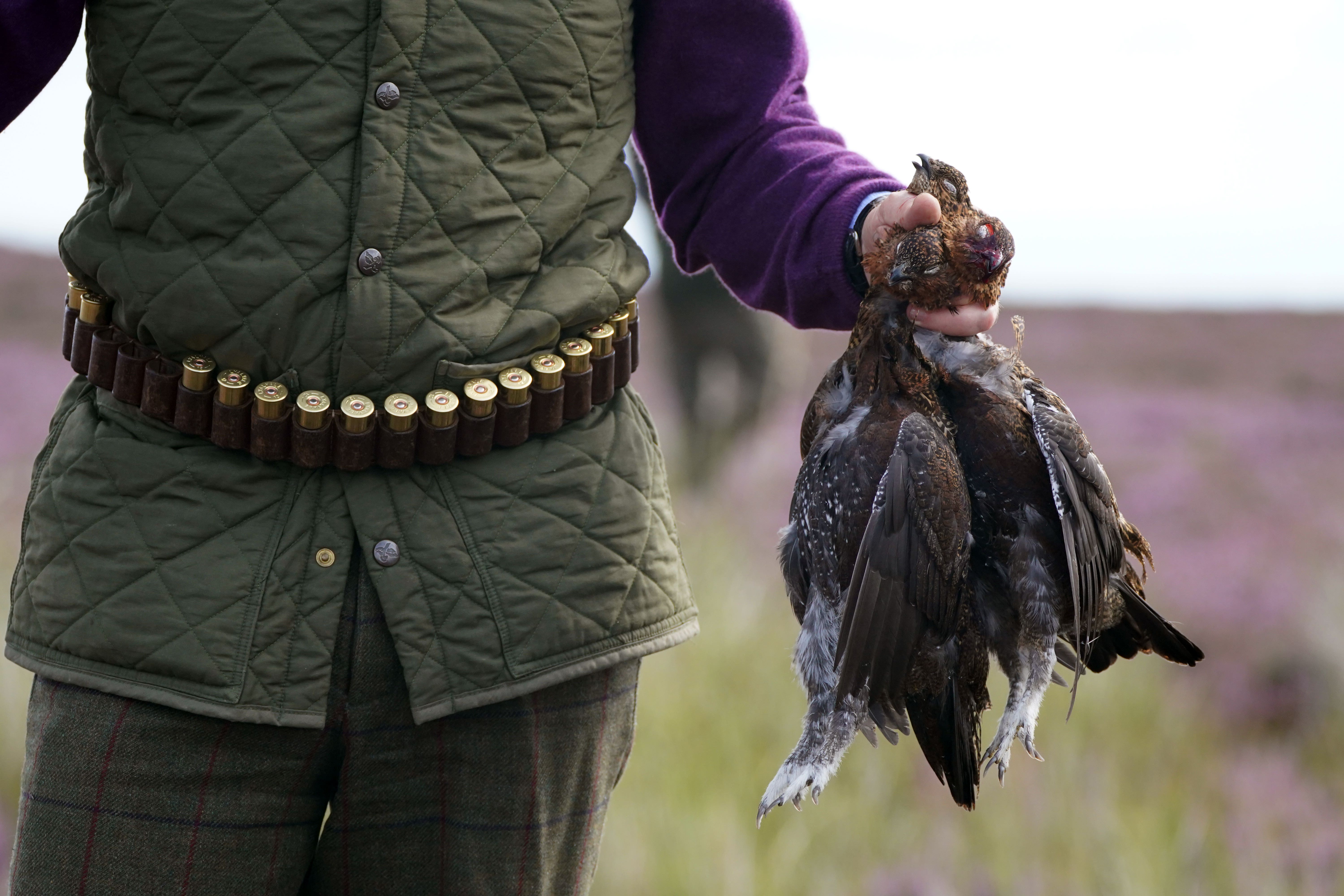Grouse shoots ready for last ‘Glorious 12th’ before licensing scheme begins
Landowners say the grouse shooting season is at risk from ‘excessive’ legislation at Holyrood.

Your support helps us to tell the story
From reproductive rights to climate change to Big Tech, The Independent is on the ground when the story is developing. Whether it's investigating the financials of Elon Musk's pro-Trump PAC or producing our latest documentary, 'The A Word', which shines a light on the American women fighting for reproductive rights, we know how important it is to parse out the facts from the messaging.
At such a critical moment in US history, we need reporters on the ground. Your donation allows us to keep sending journalists to speak to both sides of the story.
The Independent is trusted by Americans across the entire political spectrum. And unlike many other quality news outlets, we choose not to lock Americans out of our reporting and analysis with paywalls. We believe quality journalism should be available to everyone, paid for by those who can afford it.
Your support makes all the difference.Saturday will be the final “Glorious 12th” – the official start of the grouse-shooting season – before a new Scottish law brings in a licensing scheme and regulations for the country sport.
Landowners say the tradition, one of the busiest days of the shooting season, is at risk from the “excessive” legislation going through Holyrood.
The Scottish Government wants to minimise the impact of grouse moors, which campaigners say are causing environmental damage.
The Wildlife Management and Muirburn Bill was introduced at the Scottish Parliament earlier this year, seeking to implement many recommendations of the Werritty review in December 2019.
That report called for widespread changes to grouse moor management and the regulation of traps in Scotland.
Scottish Land & Estates said the game and country sports sector is worth more than £350 million to the economy, supporting 11,000 jobs.
Its director of moorland, Ross Ewing, said: “Sustainable grouse moor management provides a huge boost to the economy, bringing visitors to rural areas from August to December and providing revenue which underpins rural jobs year-round.
“The licensing scheme proposed by the Scottish government is excessively disproportionate, allowing NatureScot to suspend a licence if an official investigation is initiated and, crucially, without being satisfied that any relevant offence has been committed.
“We would urge the Scottish Government to amend the legislation, before it has an impact on jobs and the rural economy.”
He argued that grouse moors provide environmental benefits through carbon capture, peatland restoration and wildfire prevention.
Mr Ewing continued: “Sustainable grouse moor management provides remarkable conservation benefits, particularly for ground-nesting birds, birds of prey, rare moorland plants and pollinators.
“The uplands are home to specialist species that benefit enormously from land management for red grouse.”
Meanwhile, the climate campaigners Extinction Rebellion said they would hold a protest on the “inglorious twelfth” at Dundee Airport.
The group said the airport is near several large hunting estates which shooters will be flying in to visit.
It said grouse moor management brings “huge environmental costs” including the burning of heather and the culling of other species.
The Scottish Government said it had carefully considered the implications of the Bill.
Environment Minister Gillian Martin said: “The Scottish Government expects grouse moors in Scotland to be managed in a sustainable and responsible way, that minimises environmental impacts and helps to protect nature and wildlife.
“Many landowners are already doing so and we want others to follow their example.
“The vast majority of gamekeepers in Scotland care deeply about the land they help to steward, respect their natural environment and wildlife populations and make a valuable contribution to our economy and delivering our net-zero ambitions.
“The provisions in the Bill provide for a practical, proportionate and targeted licensing regime which will support those carrying out activities appropriately and in line with the law, and will have consequences for those that don’t.”
Jake Swindells, director of the Scottish Countryside Alliance, also said he was “extremely concerned” by the Bill.
He said: “Unless the government works closely with those who actually manage the land and listens to public bodies including the Scottish Fire and Rescue Service and Police Scotland, both of which have expressed serious concern with elements of this Bill, they risk getting this very badly wrong.”